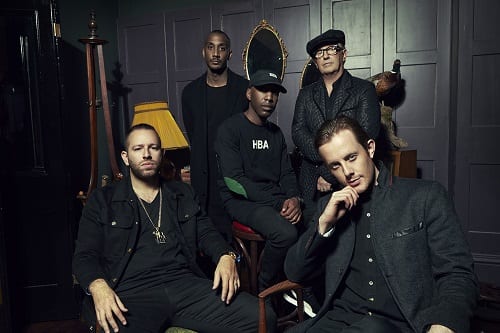Ever thought about hosting your own soundclash this summer? Then you better know the rules…
We called up Sir Selector himself David Rodigan to find out the intricacies of a traditional soundclash. He’s currently on the road with Chase & Status, Shy FX and MC Rage as Rebel Sound and serving up killer dubs like this Ninjaman and Ms Dynamite voiced shake-up of Shy FX’s legendary remix of Ray Keith’s Chopper….
“We didn’t know how the chemistry would work but it worked well,” says David of Rebel Sound’s slew-slamming showcase at Red Bull’s Culture Clash last October. “Everyone’s passion and knowledge of the culture is incredible. To be on stage with a team of people who really know what they’re doing is an honour.”
David and fam are now delivering a whole new series of exclusively ‘voiced’ tracks for festivals such as High Definition, Nass, Mutiny, Pukklepop, Creamfields, Reading and Leeds, Don’t take our word for it, though, take none other than Trevor McDonald’s:
“At these events it’s important to know we’re not clashing,” David reminds us. “We’re not competing, we’re entertaining. So we’re balancing exclusives, future heat and personal favourites that are uplifting and joyful. When I’m clashing, it’s another game altogether…”
And this is how the game works…
Everything has to be on dubplate
“In a traditional clash, unless specified, all records played throughout the entire night have to be exclusive to that competitor and, most importantly, they must have your name in it.”
Challenges
“Your selection – or the validity thereof – can be challenged or questioned by your opponent. If it’s an incorrect challenge there’s uproar! The challenger is humiliated for calling a bogus dub.”
45 Shop Locked
“Some soundclashes will have a special non-dubplate round where you can play any standard single or 45. Here your creativity has to be at its best and the message about or against your opponent has to be in the song. This is a reminder of the original rules that you don’t make personal remarks. Back in the day it wasn’t about direct calling, it was about choosing songs that say something about your opponent and being creative with that.”
Having a Plan B is essential
“When I’m clashing I have a Plan A and a Plan B. You don’t know how well your opponent knows your record box. Always suspect they know exactly what dubs you have and always think about how you’ll move from one plan to another plan. It’s wise to have a good idea of the dubs they have, too…”
Get Rid Of / Counteractions
“’Getting rid of’ is when a competitor knows what dubs you have in your box. They will either voice the artist on the same song. Or voice on a track that’s called a counteraction. So, for example, if I’m playing Dubplate In The Ghetto Tonight, they will record Johnny Osbourne singing Dubplate In The Ghetto Tonight.
Now that could be seen as a repeat – which is an instant lose. But if it’s voiced directly at me then it can’t be considered to be a repeat. So there’s this whole culture of getting rid of, they’ll play key songs they know are in my record box so I can’t play them. So it’s becoming harder and harder in Jamaican clash culture. It’s become more about money. If you’ve got money you can cut counteractions but they can only be used once – they’re specific to that opponent. You can never play it again.”
Experience Rebel Sound on tour this summer…
05/07/15 – High Definition Festival, Tunbridge Wells
11/07/15 – Nass Festival, Somerset
19/07/15 – Mutiny Festival, Portsmouth
20/07/15 – Pukkelpop, Belgium
28/08/15 – Creamfields, Liverpool
29/08/15 – Reading Festival, Reading
30/08/15 – Leeds Festival, Leeds


